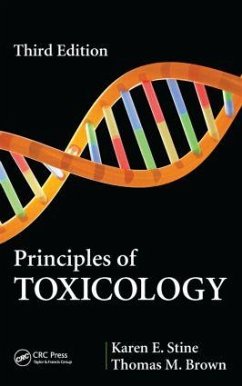Reflecting the broad and interdisciplinary nature of toxicology, this third edition of Principles of Toxicology explores the biochemical, physiological, and environmental aspects of the subject.
This new edition is updated and revised to include reference to several major new directions in the science of toxicology, including significant changes in thinking about cancer and carcinogenesis as well as the rapid expansion of toxicogenomics. The book also includes new chapters on topics of timely interest such as radiation, food safety, and natural toxins.
As in previous editions, chapters combine background material in the appropriate discipline-which helps readers review and remember the basics-with new information on toxicology to stress key principles and concepts. Also included is a selection of updated case studies through which principles and concepts are applied to real-world issues.
The book features an extensive cross-referencing system linking allsections and enhancing the integration of material, thus helping readers tie it all together. It also includes an appendix of selected toxicants that describes chemical structure, category of use, and toxicity. These features make specific information quick and easy to find. The easy-to-follow format and clear presentation of information in this book will make this one of the most useful references on your shelf.
This new edition is updated and revised to include reference to several major new directions in the science of toxicology, including significant changes in thinking about cancer and carcinogenesis as well as the rapid expansion of toxicogenomics. The book also includes new chapters on topics of timely interest such as radiation, food safety, and natural toxins.
As in previous editions, chapters combine background material in the appropriate discipline-which helps readers review and remember the basics-with new information on toxicology to stress key principles and concepts. Also included is a selection of updated case studies through which principles and concepts are applied to real-world issues.
The book features an extensive cross-referencing system linking allsections and enhancing the integration of material, thus helping readers tie it all together. It also includes an appendix of selected toxicants that describes chemical structure, category of use, and toxicity. These features make specific information quick and easy to find. The easy-to-follow format and clear presentation of information in this book will make this one of the most useful references on your shelf.
"Well-targeted by the authors for the intended purpose. Online access to material is employed where appropriate... Where relevant the text includes historical examples to assist or amplify the subject matter... One of the strengths of the book is the considerable cross referencing which provides useful assistance to the user to fully understand the wider ramifications of what might at first sight appear relatively isolated or limited problems. Furthermore the case-studies achieve exactly what they are intended to do, namely highlight the important points and place them in a context which is relevant and illustrative" - (Highly Commended, Public Health, BMA Medical Book Awards 2016)

